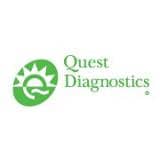
Approximately 3.2 million Americans are infected with hepatitis C.
The primary focus will be on Baby Boomers–people born during 1945 to 1965–who are five times more likely than other adults to be infected. One-time testing, as recommended by the CDC in 2012, could prevent more than 120,000 deaths in this age group.
In June, the Preventive Services Task Force recommended one-time hepatitis C screening for all adults in this demographic.
“Deaths from hepatitis C infection have nearly doubled over the past decade to now more than 15,000 a year,” says said Jay Wohlgemuth, MD, senior vice president, science and innovation, Quest Diagnostics. “Early detection and treatment of hepatitis C saves lives, but most people who are infected don’t know it or are not being effectively treated.”
| Hepatitis C virus infection is the most common chronic bloodborne infection in the United States. The disease can cause liver damage and cancer and is a leading cause of liver transplants. Hepatitis C often does not manifest symptoms for decades. Early diagnosis, through laboratory blood tests, and treatment can help prevent liver damage, cirrhosis, liver cancer and death. |
Under an agreement, medical experts, scientists and health informatics experts from Quest Diagnostics and the CDC’s Division of Viral Hepatitis will share access to de-identified hepatitis C test results, in a HIPAA-compliant manner, from the Quest Diagnostics Health Trends™ national clinical laboratory database, which represents every state and the District of Columbia. The de-identified data, with names and personally identifying information removed, will include results of screening and confirmatory diagnostic tests as well as genotyping and viral load tests used by clinicians to manage treatment.
Data will be evaluated to identify and track epidemiological trends in hepatitis C virus infection, testing, and treatment, and evaluate how those trends differ based on gender, age, geography, and clinical management. The organizations may jointly publish results of their research, such as in peer reviewed publications and scientific conferences.
Quest Diagnostics provides comprehensive diagnostic information services for hepatitis C, including genotyping, risk stratifying, and viral load testing.
[Source: Quest Diagnostics]



